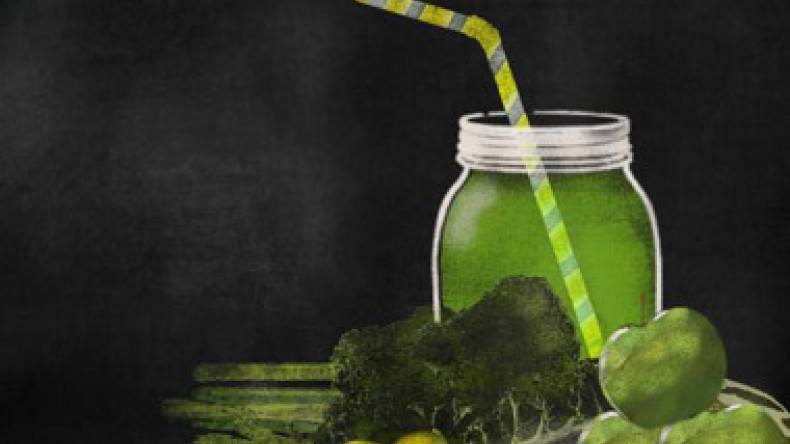
There's no benefit to a detox diet — you'll just get hungry
Green juice for breakfast, cucumber water as a midday snack, orange juice for lunch, and a thick brownish-red juice with a side of raw broccoli for dinner. This is the type of diet millions of Americans are following periodically. Why? Detox diets have quickly become the newest health craze, but is there any truth to their purification claims? Experts weighed in to dispel industry myths that have made a lot of money off desperate dieters looking for a quick fix, Medical Daily reports.
“Let’s be clear,” Edzard Ernst, a professor of complementary medicine at Exeter University, told The Guardian. “There are two types of detox: One is respectable and the other isn’t. The other is the word being hijacked by entrepreneurs, quacks, and charlatans to sell a bogus treatment that allegedly detoxifies your body of toxins you’re supposed to have accumulated.”
A respectable detox would be expelling drugs and alcohol from your system, especially if addiction comes into play. Detoxing calories out of your system really doesn’t make too much sense, but then again America doesn’t really have a reputation for dietary health. It’s no surprise that a country based on quick fixes, fast food, and a socially lubricated alcohol problem, would fall prey to the detox theory.
Detoxification diets are boastfully advertised as ways to remove toxins from the body with the use of a fasting period followed by a strict diet of raw fruits and vegetables. The theory is that they’ll rid the body of toxins, clean the colon, and empty the intestines, but there is extremely limited and arguably no substantial evidence to support the diet fad.
“The healthy body has kidneys, a liver, skin, even lungs that are detoxifying as we speak,” Ernst said. “There is no known way — certainly not through detox treatments — to make something that works perfectly well in a healthy body work better.”
Some people report feeling more focused and energetic during and after detox periods, according to Mayo Clinic. But that could be attributed to a number of things, including the copious amounts of water consumption required by dedicated detoxers, and the lack of empty carbs that tend to make people tired after they breakdown. But the claims get a little more ridiculous as the industry grows, because at the end of the day, it’s a business trying to sell the consumer a solution to their problems in a convoluted health boom.
The brilliant lies of the detox industry
Detoxing food pads, for example, are worn overnight and are promised to pull the toxic sludge right out of your body and through your feet. By morning, the pads are brown, however the color is only a chemical reaction to the sweat from your feet. “It’s a scandal,” Ernst said. “It’s criminal exploitation of the gullible man on the street and it sort of keys into something that we all would love to have — a simple remedy that frees us of our sins, so to speak. It’s nice to think that it could exist but unfortunately it doesn’t.”
The body is amazing, and has figured out ways to fend for itself against toxins without you having to deprive it of important proteins and complex carbs, just to get you through the day. Broccoli, sprouts, mustard plants, and cabbage all contain low levels of cyanide. Eating them will poison the liver, but only incrementally and harmlessly — this process also preps enzymes to deal with other poisons, such as vodka. But there is absolutely no need to overload on the greens and forget about the rest of the food pyramid. There’s a lot of money in the detox industry and its easy to fool consumers with glamorous claims of purification when really, it’s simply blind deprivation.
“You need to look at our social makeup over the very recent past,” London psychologist Susan Marchant-Haycox, told The Guardian. “In the 70s, you had all these gyms popping up, and from there we’ve had the proliferation of the beauty and diet industry with people becoming more aware of certain food groups and so on. The detox industry is just a follow-on from that.”
Newsfeed
Videos






























